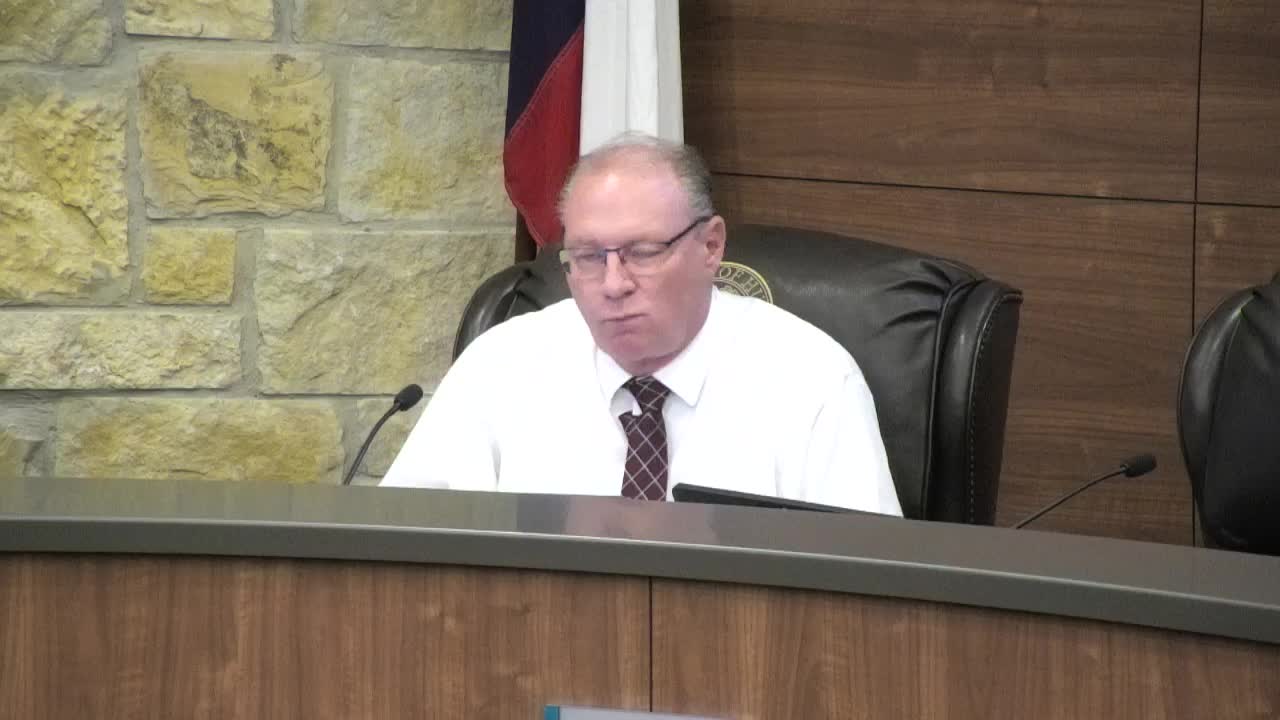Council directs staff to draft process for Hutto EDC to manage select CIP projects; several projects and costs discussed
Get AI-powered insights, summaries, and transcripts
Subscribe
Summary
After extended debate, council directed staff to develop a process for the Hutto Economic Development Corporation to oversee selected capital improvement projects. Staff and council outlined four candidate projects and reviewed recent water, wastewater and spine‑road costs tied to the mega‑site and Cottonwood area.
The Hutto City Council on Oct. 16 directed staff to develop a process for the Hutto Economic Development Corporation (EDC) to consider managing or helping fund select capital improvement projects, after an hour‑plus policy discussion about project delivery, contracting flexibility and accountability.
City Engineer and staff summarized four projects the council had highlighted for possible EDC involvement: Brushy Creek Wastewater Interceptor Phase 4 (an interceptor intended to relieve a critical lift station pinch point), a roundabout at CR 1307 and FM 1660 (in design), intersection improvements at Exchange and Live Oak, and the Live Oak extension. Staff provided planning and design cost estimates: the interceptor is listed with a 90% construction estimate near $51.0 million and total project estimate about $55.2 million; the CR 1307/FM 1660 roundabout design cost was reported at about $1.0 million with a construction estimate ~ $18.7 million; Exchange at Live Oak construction estimate roughly $2.8–2.9 million; Live Oak extension design previously prepared by a private developer and might require re‑authorization or a new right‑of‑way approach.
Council members and EDC representatives debated how the EDC could increase procurement flexibility (for example by using negotiated proposals or pre‑qualified shortlists rather than a strict low‑bid requirement) and whether that approach would remove public safeguards. City staff and the EDC director said their intent is to preserve council oversight: city council would still approve funding; staff would continue technical review; the EDC would be used to execute projects within an agreed policy framework so the city can seek contractors with stronger schedules or more operational reliability when that is the council's preference.
After clarifying language in several exchanges, the council voted to direct staff to draft a process for the EDC to manage the four projects (and the process would be returned to council for approval). Council asked city staff and EDC counsel to prepare standard form contractual language and to use the spine‑road implementation as a case study in the proposal so council could evaluate the pros and cons before approving any specific funding transfers to the EDC.
The vote to direct staff to draft and return the process carried 6–0. Separately, the council later approved other related actions in executive session, including property acquisitions and right‑of‑entry agreements tied to CIP work.
